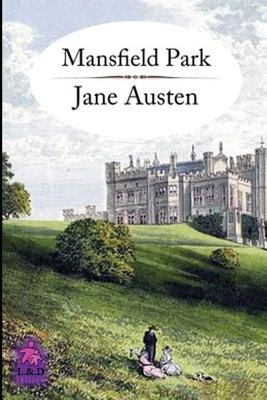Appreciating Literature, or Not

I recently read Jane Austen's Mansfield Park, which I understand is a classic. I was able to compare it to similar stories written a hundred and forty years later which were set in the same period, and well... Sorry, no spoilers for the reviews to come, but it had me considering literature in light of several YouTube videos I've watched which outline how to increase your enjoyment of reading. I have some thoughts on that subject.
I will add the links to the videos below, but to sum up their advice in a nutshell; it involves doing everything your English teacher wanted you to do in English class with your assigned reading. You were to study the book's story, plot, themes, symbols and symbolism, and style. You might even consider rereading it in order to be able to see those features more clearly. In short, these videos suggest that you conduct an autopsy of the story in order to discover, and appreciate so much more about it. In other words learn how that particular sausage was made. Or to put it another way, you are to appreciate, even marvel at, how master authors, using a variety of techniques, construct the story in order to present the themes the author, presumably, wishes to deliver to the reader. Once you learn all these tricks of the trade, you can see how various authors apply them, and get an A in class, that is to say, you will enjoy the story so very much more. Which is probably true if you're an English major, or an intellectual. But I'm neither, and I find that I disagree with this approach on a fundamental level.
In my view, books are to be read. Period. If they are written superbly, or even competently, everything the author has to say, will be conveyed within the story as it unfolds. Perhaps paradoxically, everything essential will be said almost inexplicitly. Nevertheless, the reader will be left changed in some ways from reading the story. A clock tells time, novels tell a story. If you care to, you can dismantle a clock, marvel at the intricacy of its gears, motors or springs to appreciate how it tells time, but that is not the purpose of a clock. It's purpose is to tell time. The same applied to fiction. Fiction tells a story, and perhaps explores ideas along sort the way. That is what it does. A novel is not a textbook. Though clearly, it can be used as one, just like a watch with its gears and springs.
Now, there is no harm in dismantling a story, and it may be enjoyable to do so, at least for some people. However, I think it can also be very misleading. Let's take for a example, a rather extreme work that is often cited as a book and a series that requires rereading at least several times to "understand' it. That would be Gene Wolfe's Book of the New Sun series that begins with The Shadow of the Torturer. Almost every reader will readily admit that they don't really don't know what's going on in this book and series after their first read. They attribute this fact to the genius of Gene Wolfe and their own lack of said genius. That may be one possibility. Another one is that the work is actually an incohesive mess. Maybe even on purpose. Either way it's very hard to comprehend, and so, after reading through it several times, in order to finally "get it," it may be that what these readers are actually doing is finding and fitting their own ideas together in such a way as to create some sort of order out of the chaos, so as to make the story seem like it makes sense, or more sense, anyway. It's like finding castles or cows in the shape of clouds. Humans are hardwired to make sense of things. So faced with something that doesn't make sense, i.e. The Book of the New Sun, dedicated readers eventually devise their own meaning of the story, even if the author never bothered to do so. Or maybe he's just a genius.
What I'm proposing is that when readers deconstruct a story into its perceived components, these readers may well be seeing the various story choices, techniques, and themes in the ways that appeal to them, in ways that make sense to them, regardless of the author's intent. Indeed, you can do that on purpose. You can look at a story through a particular "lens" to identify certain elements that relate with some other source. In one such example, Tristan (see below) talked about a piece he read that analyzed Dicken's Great Expectations through the "lens" of Darwin & evolution. Was that Dicken's intent? Who knows? But some sort of case can be made for it. And, I guess, looking for clues like this in Great Expectations can be fun. Another example can be found in the well known phenomena of reader/reviewers often (re)make books in their own ideas. Often to the amazement, if not chagrin, of the authors, who have no clue how these various interpretations arise from the story they wrote. All they know is that they're innocent.
Getting back to Mansfield Park, published in 1814. It was well received, and was initially praised, according to the Wikipedia entry, for its wholesome morality. Fifty years later, the Victorians treated all of Jane Austen's novels as social comedies. It was only a hundred years ago that critics and readers discovered the greatness in her work, elevating them into timeless classics which they are considered today. In the case of Mansfield Park, critical opinion on every aspect of this book ranges wildly, from positive to negative. If analyzing literary work was anything more than a literary parlor game, you'd think that the objective true meaning and value of this novel would have been discovered and agreed on after two hundred years. But that's not the case, because reading is always subjective, no matter how closely you read or analyze a work.
I'm not saying that just because I think all I need to get out of a book, I can get from reading, means that you shouldn't delve deeper into the book, if that appeals to you. I give you the joy of it. What does bother me, however, is the implication, indeed, the often bald statement when discussing this method, that doing so is a superior way of reading, for, it is at least implied, a superior sort of reader. It is something that separates the smart and serious readers from the riffraff and rabble. This simply is not the case. Analyzing a story is, in the end, nothing more than a literary parlor game, an enjoyable pastime. Unless, of course, you are using what you find in doing so as a lesson in writing. Then it's homework.
Links if you are interesting in analyzing literature from am English PhD.'s perspective.
Tristan and the Classics #1 Way to Deepen Your Love for Literature
Philip Chase & A P Canavan How to Analyze Stories Intro
There several more entries in this series if you haven't had enough.



